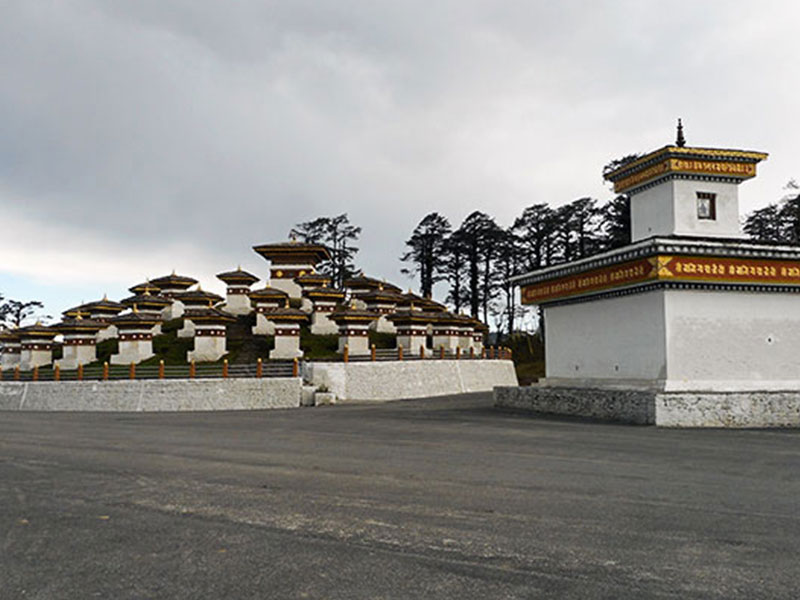Thimphu
The Kingdom’s capital city is home to approximately 100,000 inhabitants including the Royal family. This bustling little city is the main centre of commerce, religion and government in the country. The juxtaposition of ancient tradition and modernity make Thimphu the ideal location for visitors to break away from their tour itinerary to immerse themselves in the contemporary Bhutanese lifestyle.
Thimphu is the most modern city in Bhutan with an abundance of restaurants, internet cafes, nightclubs and shopping centres. However, it still retains its’ cultural identity and values amidst the signs of modernization. Thimphu is one of the few towns in Bhutan that have been equipped with ATM banking facilities and is a good place to stock up on some currency.
There are several attractions in Thimphu such as the National Post Office, the Clock Tower Square, the Motithang Takin Preserve, Tango and Chari Monasteries, Buddha Dordenma, National Memorial Chorten, Centenary Farmer’s Market, Semtokha Dzong to name a few. These form the most important tourist attractions in the capital city.
The culture of Bhutan is fully reflected in Thimphu in respect of religion, customs, national dress code, the monastic practices of the monasteries, music, dance, literature and the media. Tshechu is an important festival where mask dances, popularly known as Chams, are performed in the courtyards of the Tashichho Dzong in Thimphu. It is a four-day festival held every year during autumn (September/October), on dates corresponding to the Bhutanese calendar. One of the most curious features of Thimphu is that it is the only capital city in the world that does not use traffic lights. Instead, a few major intersections have policemen standing in elaborately decorated booths (small pavilions), directing traffic with exaggerated hand motions.
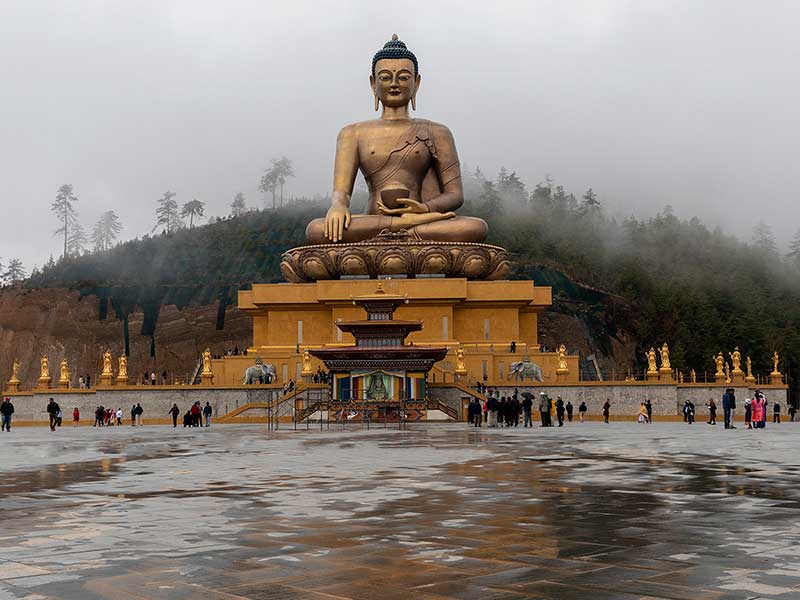
Buddha Dordenma Statue
The Buddha Dordenma is located atop a hill in Kuenselphodrang Nature Park and overlooks the…
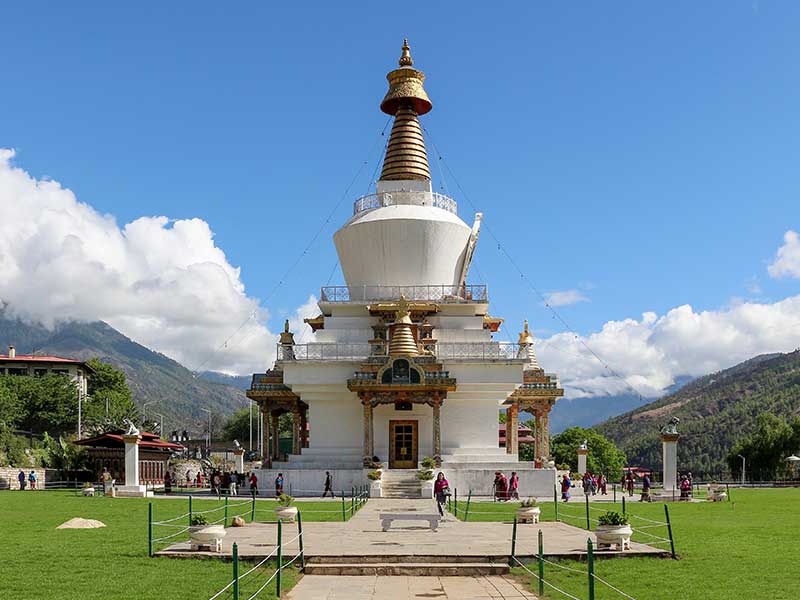
National Memorial Chorten
The National Memorial Chorten was built in memory of Third Druk Gyalpo and is dedicated…
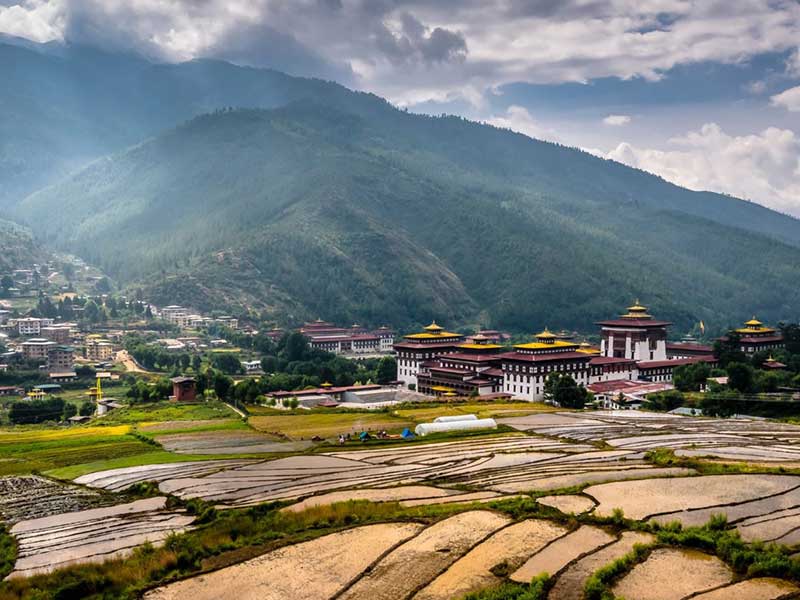
Tashichho Dzong
Tashichho Dzong has been the seat of the government since 1952 and presently houses the…
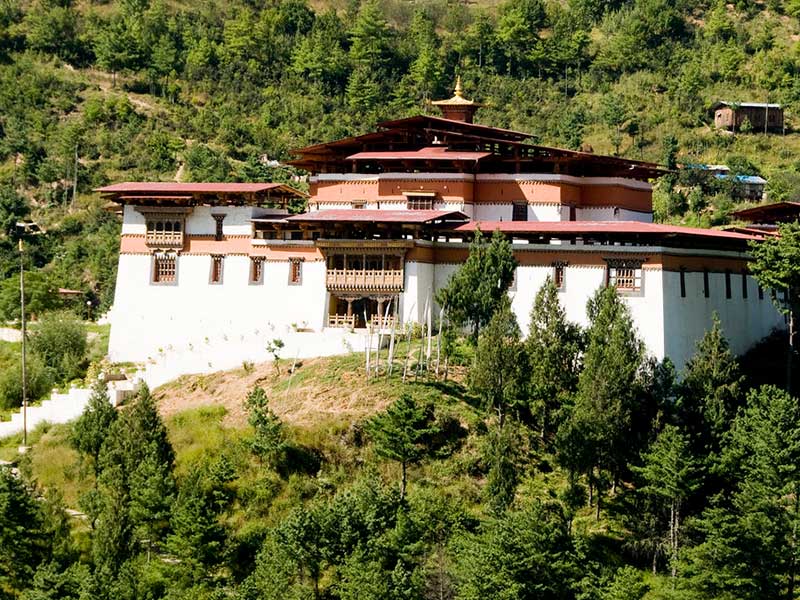
Semtokha Dzong
The name Semtokha literally means “Atop a Demon” and the legend associated with the dzong’s…
